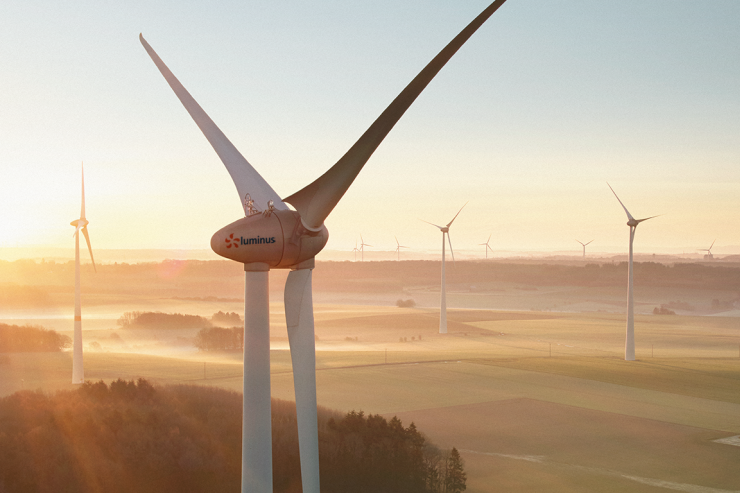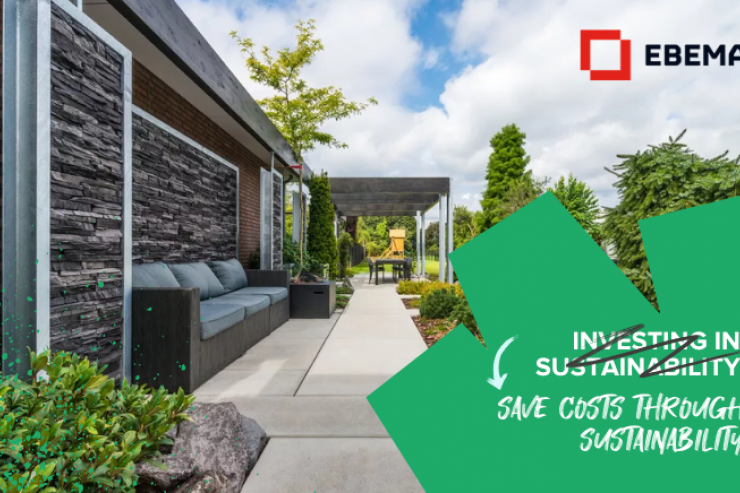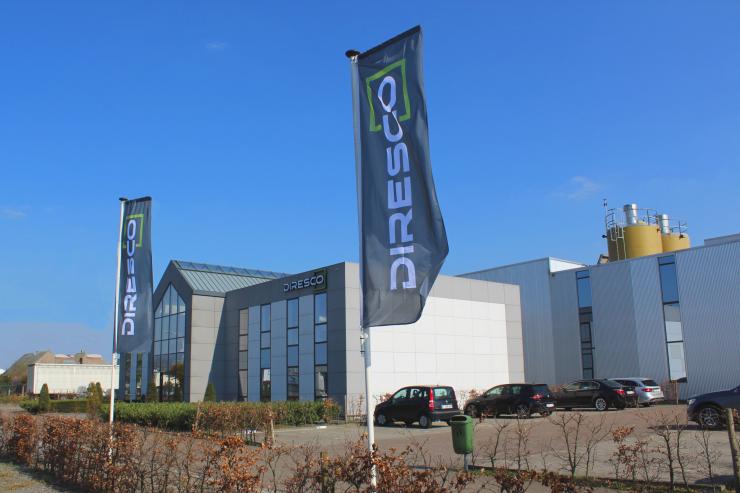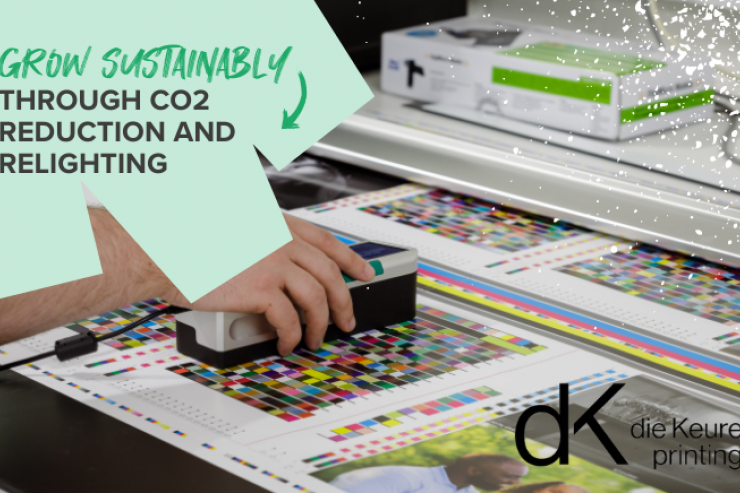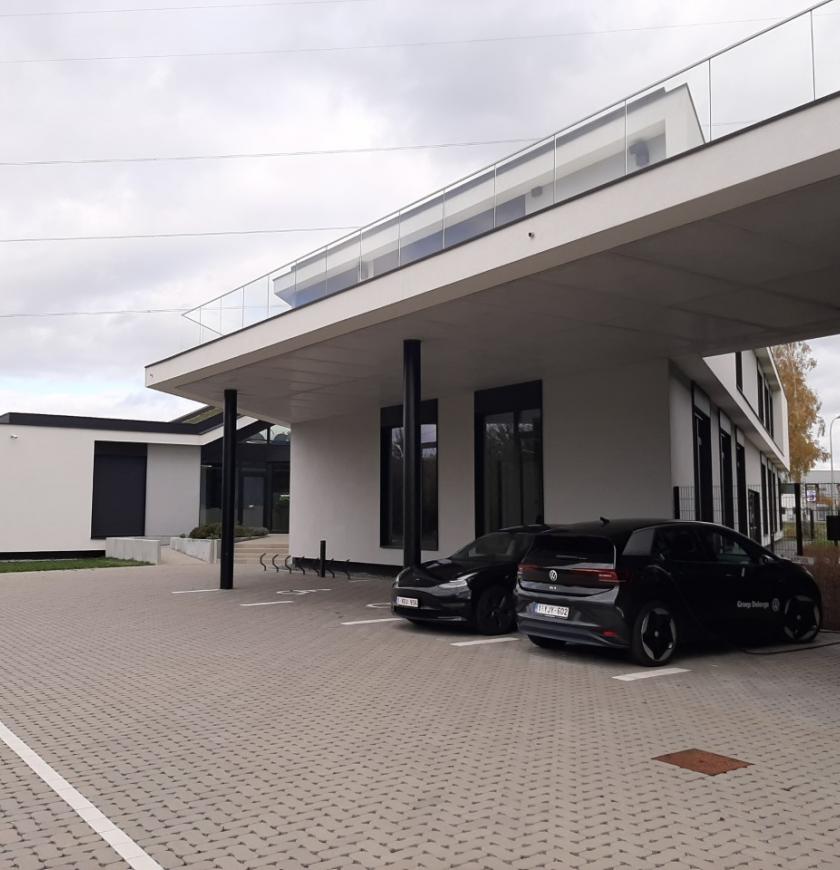
Sustainability on the road
Commuting, meetings, employees who are constantly on the road to help clients... The mobility of the service industry has a considerable impact on the environment. Road traffic is one of the major sources of CO2 emissions as many Flemish people still drive diesel cars, and we are adding more and more mileage every year.
For example, a study by the Flanders Environment Agency (VMM; Vlaamse Milieumaatschappij) shows that Flanders is still not achieving the recommended values set by the World Health Organisation. As far as ozone is concerned, no one lives in a region with sufficiently low concentrations, and only 1% of the population lives in a region where particulate matter measurements are low. This means that far-reaching measures are needed to safeguard health (VMM, 2019).
The 2030 Clean Power for Transport action plan drawn up by the Flemish government in response to the Energy and Climate Plan sets very strict yet necessary objectives for mobility. By 2030, all newly sold passenger cars and at least 30% of light trucks and delivery vans must be low-carbon.
Infinity was Encon's vision for an office of the future that would inspire other companies to invest in sustainability. In addition to creating a pleasant workplace for its employees, generating 100% green energy and numerous ecological and technical measures, an electric vehicle fleet was not a choice but a matter of course. This allows employees to be on the road and of service to clients in a green way, while the office building and services are ready for a future where green mobility will play a major role.
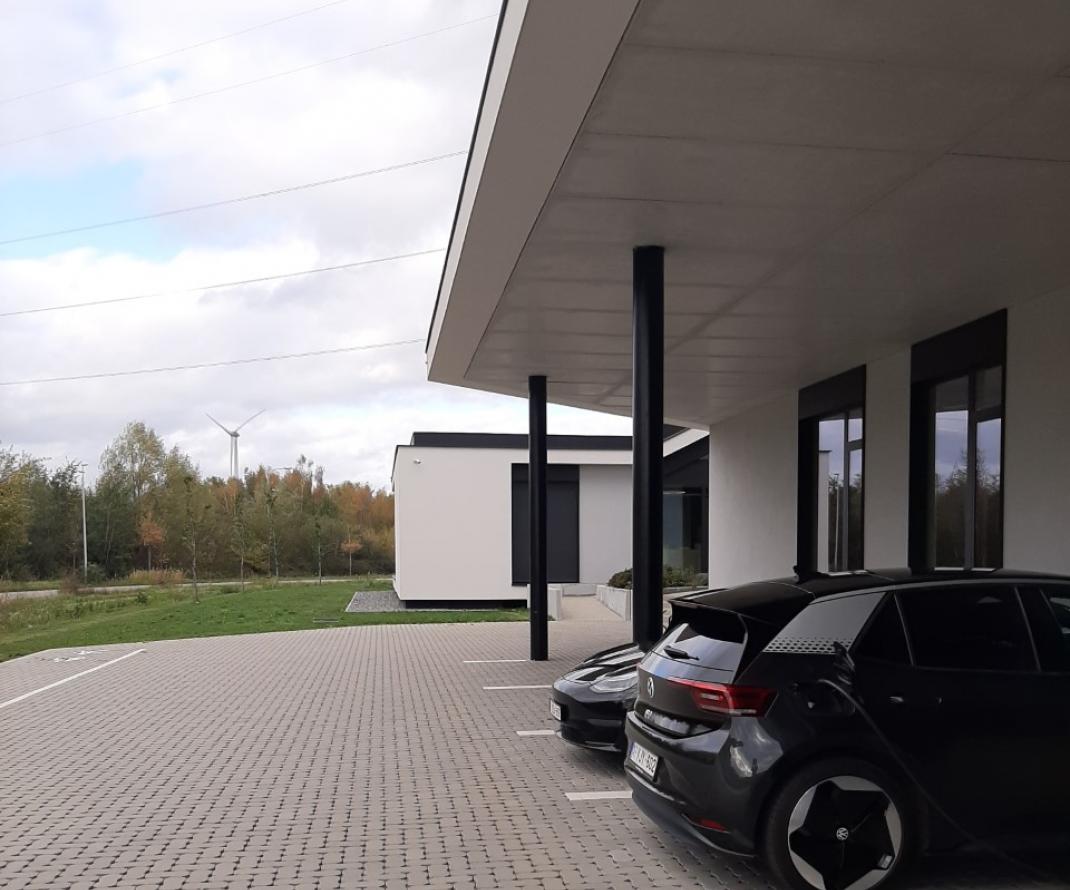
The installation of a charging station is always based on a very thorough feasibility study that first looks at current electrical consumption and the available electrical infrastructure. Subsequently, predictions are made on future consumption after the purchase of electric cars and charging stations according to the current number of kilometres travelled by employees commuting and providing services. The next step is to look at the most suitable charging stations to install based on the client's needs, i.e. Infinity in this case. The capacity required is many times greater in the service industry than that required for the operation of a different company. Finally, the charging of the cars is also adapted to the production of the renewable energy present on the site. For example, smart charging stations can be used to adapt the charging strategy to the available green power at any given time of the day.
Infinity currently has 12 smart charging stations (300 kilowatts), making it the largest private charging station for electric cars. The charging stations are mainly intended for our own employees, but they are also used by clients and visitors during events. This also motivates clients to travel electrically. With the entire fleet to become electric within the next two years, Infinity does not only want to double the number of charging stations to make electric charging possible for all employees but also help facilitate the charging infrastructure in their private lives.
Moreover, all the energy needed for recharging is 100% green. The charging stations are supplied with green power by the available solar panels and wind turbine.
Investing in an electric fleet and its charging stations will help expand the network of charging stations in Flanders. This makes the purchase of green cars more appealing, which encourages further developments in the field of electric mobility. Finally, awareness-raising also plays a crucial role here: utilising these green developments will set an example for your employees and clients.
Practice what you preach
It is through experience that Encon is able to answer all questions and requests. Contribute to the mobility of the future and help meet the challenges of transport and mobility, sustaining a strong economy!

